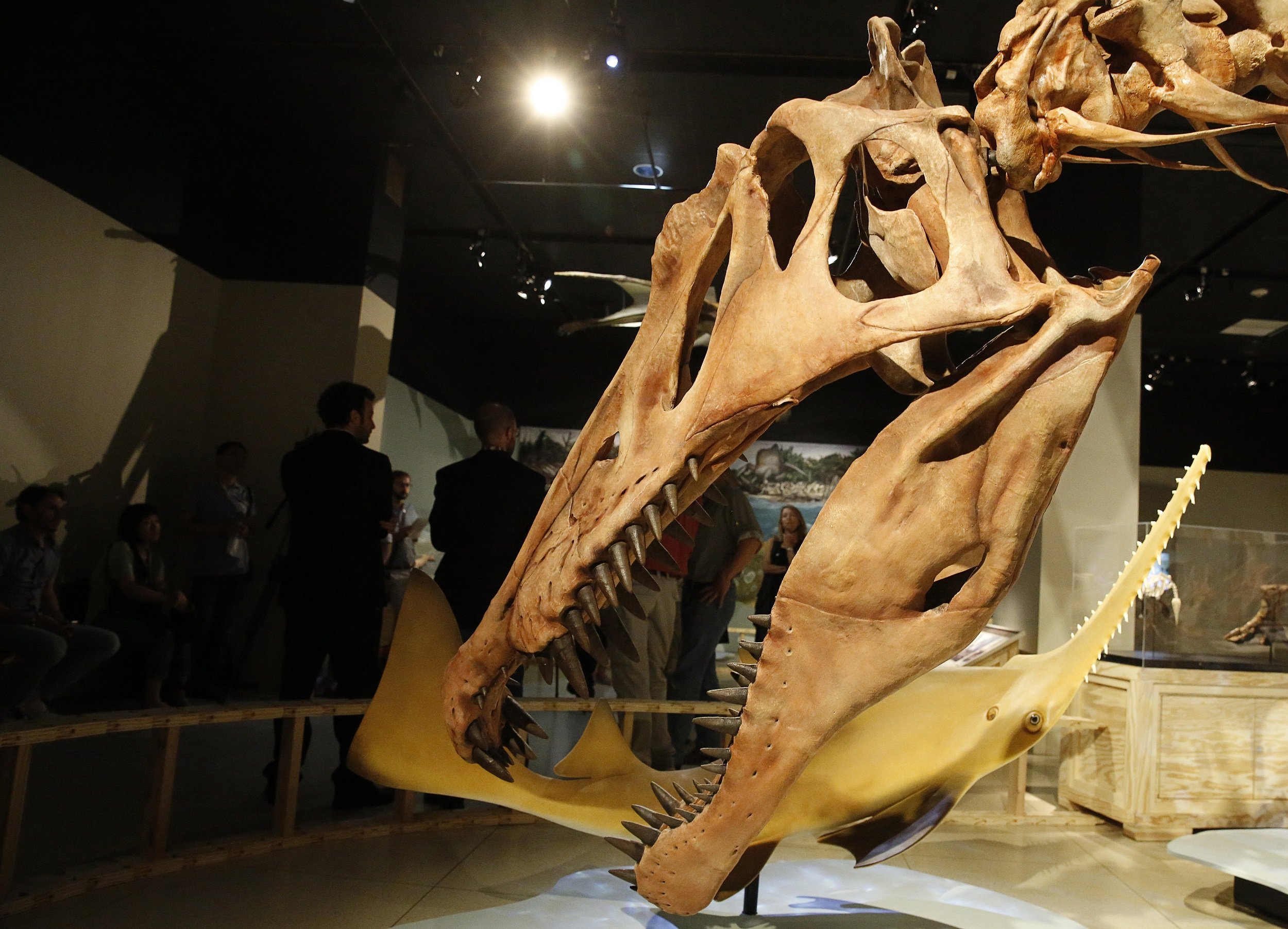
The meteor that hit the Earth millions of years ago and is believed to have caused the dinosaurs' extinction also led to a major re-composition of forests and completely shifted the landscape of plants, a new study revealed Tuesday.
Sixty-six million years ago, forests were made up largely of slow-growing, evergreen plants, such as oak, holly and cycads. After the meteor's impact, those plants became mostly extinct, while fast-growing, flowering ones—deciduous plants—began to thrive, claims the study, published in the journal PLOS Biology.
"All of our resources come from these plants, so it's quite worthwhile to think about the big charismatic dinosaurs but also what those dinosaurs were eating," said Benjamin Blonder, lead author of the study and science coordinator at the University of Arizona's Sky School.
Deciduous plants, which dominate our modern forest landscapes, have a "live fast, die young" strategy—their metabolic rates are higher, which means they shed their leaves seasonally. Evergreens, on the other hand, live a "slow but steady" life, keeping their leaves the whole year. Blonder compared the two to investing in stocks (deciduous) versus bonds (evergreen).
"There's a major strategy shift in terms of plants economics between the Cretaceous and the Paleogene," said Blonder, referring to the geologic period that wiped out more than half the plant species present at the time.
Scientists knew that plant communities before and after the meteor event (called the Chicxulub bolide impact) were different, but there was little data about whether the shift was random or resulted from the collision, which led to a dramatic drop in temperature known as an "impact winter." This study concludes that it was not random and, says Blonder, provides a new perspective on what mass extinctions do to plants.
The study was funded by a Rocky Mountain Biological Laboratory graduate research fellowship, the National Science Foundation and the Geological Society of America. Researchers combed through some 7,000 fossilized plants collected in the mid-1990s from rock layers in southern North Dakota known as the Hell Creek and Fort Union formations. The samples, which span 2.2 million years, are now housed at the Denver Museum of Nature and Science. Scientists picked out the ones that had been best preserved, put them under the microscope and studied their network of veins, which revealed how much water moved through each leaf.
Holding the fossils was both humbling and exciting for Blonder, who said that "it is amazing to think that we can infer so much about the Earth's past deep in time without having been there."
The findings may help scientists understand how climate will behave in the future by giving them a window into how it evolved in the past, even if the driving forces are different. Today, for example, the biggest challenge to the climate is greenhouse gas emissions.
"This study provides an example of how the Earth has responded to immediate and catastrophic climate change in the past," said Blonder, "and provides a comparison or baseline for contextualizing future change."
Uncommon Knowledge
Newsweek is committed to challenging conventional wisdom and finding connections in the search for common ground.
Newsweek is committed to challenging conventional wisdom and finding connections in the search for common ground.
About the writer
Karla Zabludovsky covers Latin America for Newsweek. Previously, she reported for the New York Times from Mexico, covering regional politics, ... Read more





